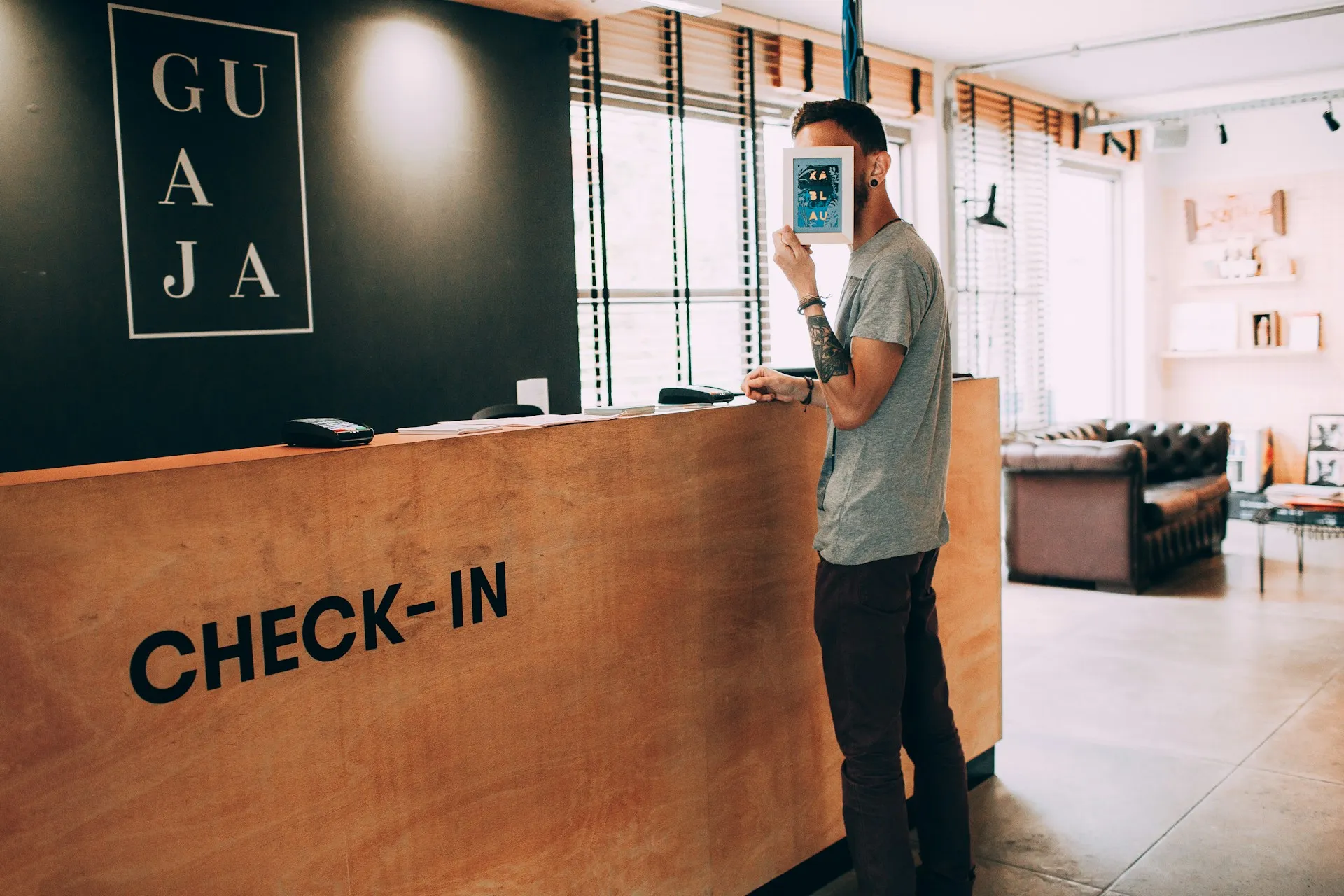
Late check-ins and early check-outs can be stressful—but with the right systems, you can stay in control.
Introduction: Why Timing Matters
In hospitality, time is money—literally. A guest who checks in late may throw off staffing schedules, while a guest who checks out late can derail same-day turnovers and incoming arrivals. Early check-outs can also leave revenue gaps if not managed well.
For hotels, inns, and vacation rentals, handling these situations with clarity and consistency is the difference between order and chaos. Done right, flexible timing policies can even enhance guest satisfaction. Done poorly, they trigger stress for staff and negative reviews.
This article explores proven strategies to manage late arrivals and early departures—without letting chaos creep into your operations.
Late Check-Ins: Balancing Flexibility and Boundaries
Communicate Before Arrival
Guests arriving after standard check-in hours should always be informed of policies ahead of time. Automated pre-arrival emails or app notifications work well. Clear instructions reduce stress for both staff and guests.
Offer After-Hours Solutions
Consider:
- Key lockboxes or digital entry codes for guests arriving outside staffed hours.
- Night auditors or on-call staff for full-service properties.
- Tiered service: basic access after hours, with full orientation in the morning.
This protects staff schedules while keeping the guest experience smooth.
Charge for Late Arrivals (When Appropriate)
Some properties use late check-in fees as a deterrent against unannounced midnight arrivals. Others frame it as a “convenience service” for guests who want guaranteed late-night access. Either way, the key is transparency.
Early Check-Outs: Turning a Loss into an Opportunity
Streamline Departure
Make it effortless for guests to leave early: express check-out envelopes, mobile check-out, or PMS-enabled one-click departures. A smooth process means less disruption.
Capture Feedback
Guests who leave early are a goldmine for feedback. Was it a personal schedule change—or something about the stay? A quick survey or text message can uncover insights you’d otherwise miss.
Revenue Strategy
Consider building policies that protect revenue:
- Minimum stay requirements during high-demand periods.
- Partial refunds only for early departures.
- Flexible cancellation add-ons at booking—guests pay for the right to leave early without penalty.
When Late Check-Out Meets Early Check-In: The Perfect Storm
Every operator dreads it: one guest lingering past check-out while the next guest arrives early, bags in hand.
Real-world hosts describe the stress: scrambling to clean around guests, dealing with awkward confrontations at the door, and racing to turn over rooms in record time.
Best Practices:
- Buffer Time – Standardize a gap between check-out and check-in (e.g., 11 a.m. vs. 3 p.m.) so staff has breathing room.
- Set Clear Rules – Post visible check-out times in rooms, send reminders the night before, and note fees for late departures.
- Offer Paid Flexibility – Many operators successfully charge fees for guaranteed late check-outs or early check-ins.
- Have a Backup Plan – If overlap happens, allow bag storage while rooms are prepared. This keeps arrivals happy without pushing staff into chaos.
⚡ Rapid Response: When Timing Collides
Even with the best policies in place, you’ll eventually face the nightmare: one guest won’t leave on time and the next shows up early. Here’s a 5-step playbook to contain the chaos:
- Communicate Immediately – Let the incoming guest know you’re aware of the situation and will keep them updated. Transparency buys goodwill.
- Secure Guest Comfort – Offer a holding area, lobby seating, or bag storage so arrivals feel cared for while the room is prepared.
- Prioritize Cleaning Tasks – Instruct housekeeping to flip critical areas first (bathroom, bed, visible surfaces) so the room is guest-ready faster.
- Leverage Amenities – Provide a complimentary coffee, drink voucher, or amenity access while they wait. It reframes delay as hospitality.
- Document and Adjust – Record the late departure, apply fees if appropriate, and review as a training example for future shifts.
This rapid response plan shifts the situation from chaotic scramble to structured recovery, helping operators keep both outgoing and incoming guests satisfied.
Technology: Your Best Ally
Modern property management systems (PMS) help automate many of these timing challenges:
- Automated reminders for check-in and check-out times.
- Mobile access keys for late arrivals.
- Real-time room status updates so staff can prioritize cleaning based on early arrivals.
Technology doesn’t replace communication, but it reduces the friction that leads to chaos.
Final Thoughts: From Stress to Strategy
Late check-ins and early check-outs aren’t going away. But with the right mix of policies, communication, and technology, you can transform them from chaotic curveballs into managed moments of service.
👉 Want a quick-reference template? Download our Check-In/Check-Out Policy Toolkit (coming soon on Etsy) to adapt for your property.
Frequently Asked Questions
What’s the fastest way to reduce chaos with late arrivals?
Communicate before arrival (automated messages), offer after-hours access (lockboxes/smart locks), and document a clear late check-in window and fee if applicable.
Should we charge for late arrivals?
If late arrivals create staffing costs or disruptions, a clearly disclosed fee can be appropriate. The policy should be easy to find, consistent, and fairly enforced.
How do we turn early check-outs into an advantage?
Trigger expedited housekeeping, release inventory in the PMS for same-day resale when possible, and ask for feedback to catch recoverable issues early.
What’s the ‘perfect storm’ scenario?
When a late check-out collides with an early check-in. Mitigate with limited ‘grace’ windows, partial-day fees, and real-time coordination between desk and housekeeping.